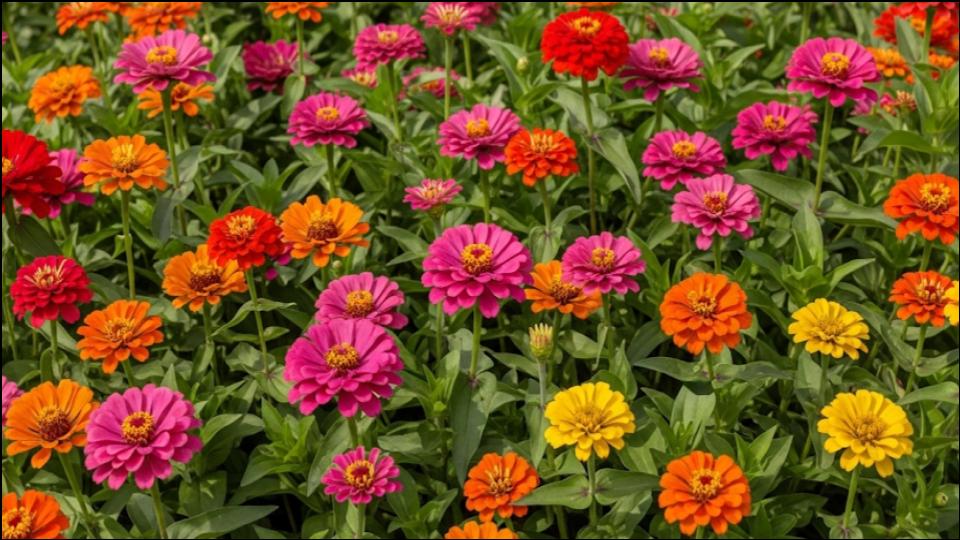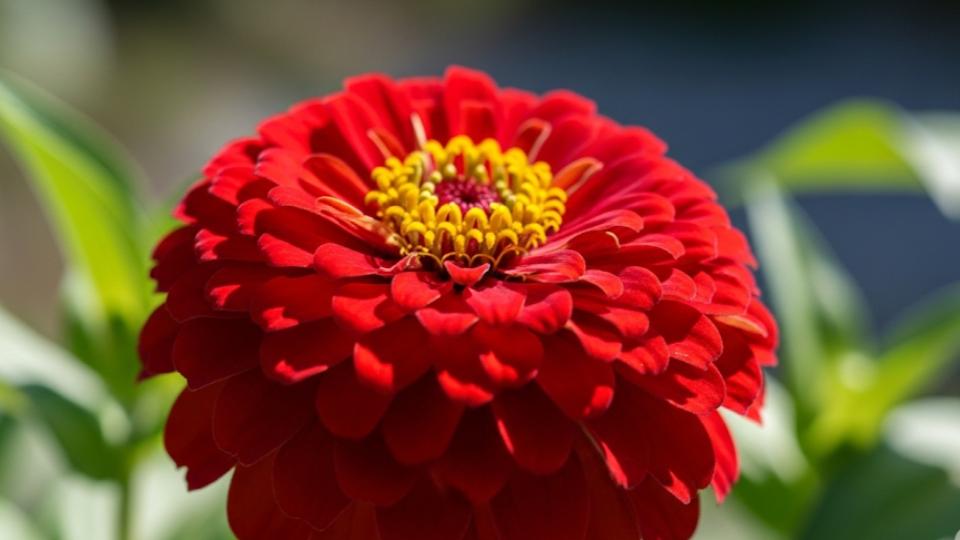As gardeners worldwide seek resilient, low-maintenance, and high-impact flowers, the humble zinnia has emerged as a horticultural powerhouse. Experts point to its exceptional heat tolerance, vibrant color spectrum, and pollinator-friendly nature as key drivers of its renewed popularity. For those seeking to invigorate their outdoor spaces, identifying the best zinnias to refresh your garden is a critical first step toward a season of continuous, brilliant blooms.

Key Zinnia Varieties at a Glance
| Variety Name | Best For | Key Trait |
| ‘Profusion’ Series | Landscape beds, containers | Superior disease resistance |
| ‘Benary’s Giant’ Series | Cut flower gardens | Large, dahlia-like blooms |
| ‘Queen Lime’ Series | Unique floral arrangements | Antique, chartreuse-green hues |
| ‘Zahara’ Series | Hot, dry climates | Exceptional heat & drought tolerance |
The Resurgence of a Garden Classic
Zinnias, native to the Americas, have long been a garden staple. However, modern breeding has transformed them from a simple, cheerful annual into a sophisticated and highly reliable performer. New cultivars offer improved resistance to common ailments like powdery mildew, a wider range of colors and forms, and stronger stems suitable for floral arranging.
“We’re seeing a significant shift in how both home gardeners and professional growers view zinnias,” said Dr. Amelia Thorne, a horticulturist specializing in annuals. “They are no longer just a ‘filler’ flower. Modern zinnia varieties are bred for performance, offering drought tolerance and season-long color with minimal intervention, which aligns perfectly with the trend toward more sustainable gardening practices.”
The 8 Best Zinnias to Refresh Your Garden
Based on analysis from university extension programs, botanical gardens, and awards from organizations like All-America Selections (AAS), the following eight varieties stand out for their superior performance, beauty, and reliability.
1. The ‘Profusion’ Series: The Disease-Resistant Workhorse
A multiple AAS Gold Medal winner, the ‘Profusion’ series is celebrated for its exceptional resistance to powdery mildew, a common fungal disease that can plague other zinnias. These compact, mounding plants produce a profusion of 2-inch, single or double flowers from early summer until the first frost. They are ideal for mass plantings, borders, and containers.
2. The ‘Benary’s Giant’ Series: The Cut Flower Favorite
For gardeners who desire impressive bouquets, the ‘Benary’s Giant’ series is the industry standard. Developed in Germany for the professional cut flower market, these plants grow up to 4 feet tall and produce enormous, 4- to 5-inch, fully double blooms on long, sturdy stems. Colors range from deep red and wine to salmon rose and pure white.

3. The ‘Queen Lime’ Series: The Unique and Trendy Choice
The ‘Queen Lime’ series, including ‘Queen Lime’, ‘Queen Lime with Blotch’, and ‘Queen Red Lime’, has captivated floral designers with its unique, antique color palette. The blooms feature shades of chartreuse, lime green, and dusty rose, often with a darker center. These growing zinnias add a touch of sophistication and vintage charm to both gardens and vases.
4. The ‘Zahara’ Series: The Champion of Heat and Drought
Similar to the ‘Profusion’ series, ‘Zahara’ zinnias are prized for their extreme durability. They exhibit high resistance to leaf spot and mildew and thrive in hot, dry conditions where other annuals may struggle, making them excellent drought-tolerant flowers. According to a report from the University of Florida IFAS Extension, the ‘Zahara’ series is a top performer in challenging southern climates.
5. ‘Zowie! Yellow Flame’: The Bicolor Superstar
An AAS winner, ‘Zowie! Yellow Flame’ demands attention with its striking, semi-double blooms. The flowers feature a magenta-rose center that transitions to a brilliant yellow-orange on the outer petals. This variety is a magnet for pollinators, particularly butterflies, and its vibrant colors do not fade in the summer sun.
6. ‘Thumbelina’: The Tidy Dwarf
For small spaces, window boxes, and the front of the border, the ‘Thumbelina’ variety is a perfect fit. Reaching only 6 to 8 inches in height, this heirloom zinnia produces a mix of single and semi-double blooms in a wide range of colors. It is one of the earliest zinnias to flower from seed.

7. The ‘Zinderella’ Series: The Scabiosa-Flowered Novelty
The ‘Zinderella’ series features a unique “scabiosa” or anemone-style flower form. Each bloom has a central, crested tuft of smaller petals surrounded by a skirt of larger, daisy-like petals. Available in colors like lilac, peach, and white, they provide unusual texture and form for gardeners looking for something different.
8. Zinnia angustifolia ‘Crystal White’: The Humble Spreader
While most popular zinnias are of the Zinnia elegans species, Zinnia angustifolia (narrowleaf zinnia) is a standout for its fine, airy texture and incredible resilience. The ‘Crystal White’ cultivar produces masses of small, white, star-shaped flowers on low, spreading plants. It is exceptionally heat tolerant and functions beautifully as a flowering groundcover or in hanging baskets.
Expert Guidance for Successful Cultivation
Achieving a stunning zinnia display is straightforward. “Zinnias are not demanding plants,” notes a guide from the Cornell University Extension. “They require full sun—at least six hours of direct sunlight per day—and well-drained soil.”
Experts recommend planting seeds directly in the garden after the last frost date, as zinnias do not perform well when their roots are disturbed. Proper spacing is crucial for air circulation, which is the primary defense against powdery mildew. For taller varieties like ‘Benary’s Giant’, spacing plants 12 inches apart is recommended.
The Future of the Zinnia
Breeders continue to push the boundaries of zinnia genetics, with a focus on developing even more unique colors, fully mildew-immune varieties, and new flower forms. As climate patterns shift, the zinnia’s inherent toughness and adaptability ensure it will remain a cornerstone of vibrant, resilient gardens for years to come. The continued innovation means the list of the best zinnias to refresh your garden will only grow longer and more diverse.
9 Creative Island Flower Beds to Enhance Your Landscape Style
